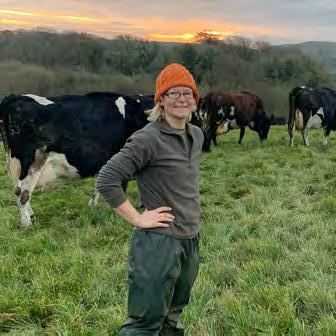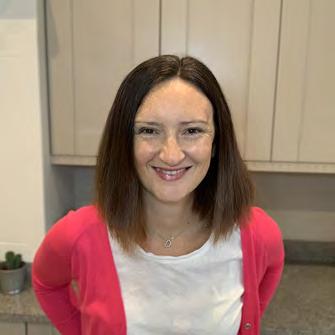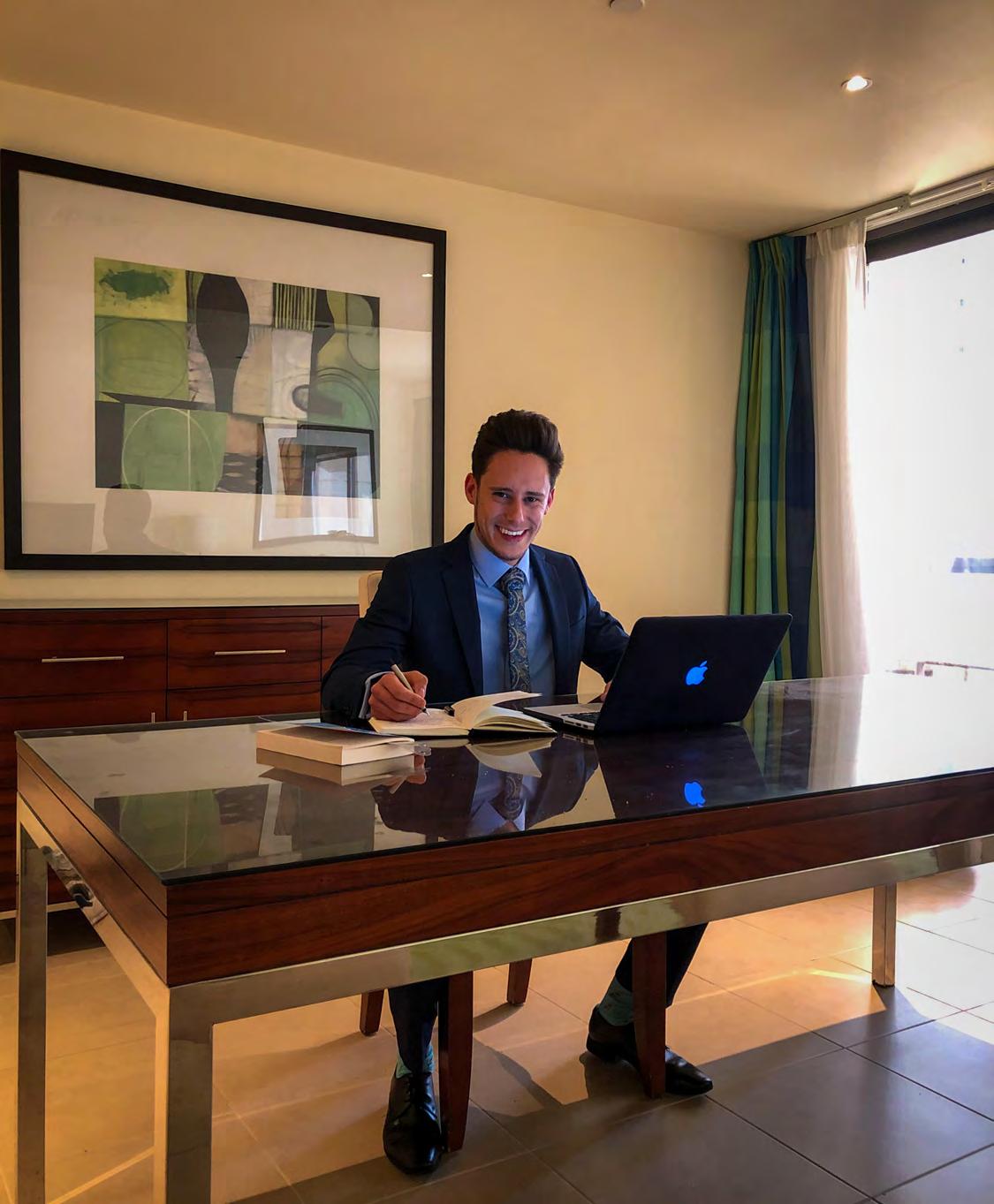
6 minute read
rethink: Lives transformed by upskilling
by CMI_
Words_Matthew Jenkin
If you find yourself having to make a personal pivot in 2021, look to these people for inspiration...
Rebecca Brown
Rebecca Brown decided to leave the Royal Navy two years ago, and although she was excited about life outside the forces, she was nervous about the future and unsure what she wanted to do next when her service came to an end in September 2020. After all, she’d been working as a watch officer for ten years and had been told she’d struggle to find stable work once she’d returned to civilian life.
Now, though, she has planted her feet firmly on the ground, working as the general manager of a large dairy farm near the village of Port William, south-west Scotland. It’s a dramatic change from the unpredictable life in the forces, but Rebecca always had an interest in agriculture (her dad was a farmer). She just didn’t think she had the skillset to do it.
She found, however, that the skills she had learned in the Navy – including the Level 7 CMI diploma in strategic management – made her a desirable candidate for her role with The Dourie Farming Company. The basics of farming were something she could learn on the job. Rebecca was supported by Ruralink, which matches land-based businesses with ex-military personnel.
The 34-year-old explains: “A lot of the organisational skills I learned in the Navy, a lot of the discipline, the timekeeping, and the people management skills, the ability to see the bigger picture – those were the big crossovers to this job.”
Diana Spellman

Over more than 20 years, Diana Spellman had carved out a successful career in market research, rising to director level. She was working as a freelance consultant but, when the pandemic hit, the company decided not to renew her contract. Instead of panicking, she saw it as an opportunity to start a new chapter in her life.
Having worked from home for the past three years, the 47-year-old mum found that one of the biggest challenges of merging home and work life was dealing with the clutter that inevitably accumulates in any busy, family household. She therefore drew on her professional experience in efficiency and workflow roles to develop a tidying system to beat this “mess stress” and achieve a more harmonious home office environment. This ‘side hustle’ blossomed into a fulltime business during lockdown, and Serenely Sorted was born.
Spellman explains that her years of management and leadership experience gave her the confidence and tenacity to launch the business – and the process skills to develop it. But what she lacked was knowledge of how to attract a bigger audience and actually generate sales. She therefore enrolled on an online PR training course, learning how to build her brand and market it.
“That’s been phenomenal,” she explains. “It helped me produce a really good media biography. It’s paying off now and starting to gain traction.”
Rachel Slawson

Project manager Rachel Slawson had just come to the end of a fixedterm contract at a healthcare consultancy when the national lockdown was announced in March. She was unemployed at a time when many firms were tightening their belts and shrinking their teams. But she wasn’t concerned. Quite the opposite in fact. She saw it as a gift.
She’d been toying with the idea of taking her career in a more creative direction ever since her previous employer had asked her to make a short video, pre-COVID. When the government ordered everyone to stay home, she thought “carpe diem” and threw herself into learning the skills needed to start a freelance podcasting business.
Over the course of lockdown, she did 17 LinkedIn Learning courses on photography, video, filming and lighting. When restrictions were finally, slowly, lifted in the summer, she was commissioned to do her first podcast and given just ten days to finish.
Slawson claims her years of experience as a project manager had given her the management and organisational skills needed to deliver the product on time, despite such a tight deadline.
She says: “Management’s about organising, but it’s also about bringing everyone involved along too. It’s a bit like a boat and I need everyone on the boat for it to work. And how I’m going to get you on the boat is by having a discussion about it.”
Paul Stollery

Three years ago, Paul Stollery and his business partner set up student marketing agency Hype Collective. Most of their work was experiential or events-based, so when the pandemic hit, it hit them hard. They could no longer run events, and £300,000 of verbally approved work disappeared from their pipeline in a week.
Stollery knew they had to act fast to protect the business and its staff. He therefore looked for a sector where he saw potential for growth, even during a global health crisis, and where his experience in PR and events could be easily transferred. The answer was influencer marketing.
But while many of the skills required to launch the new service were the same – leadership, management, analytics, content production – there were important gaps in his knowledge that needed filling.
With time at a premium, Stollery immediately began researching the sector, talking to as many experts as possible and teaching himself the nuts and bolts of the business. Once he was confident that it was the right thing to upskill himself and his team in, he started looking for training opportunities. With such a tight turnaround needed, he didn’t go for structured courses but instead brought consultants in to provide hands-on teaching. This allowed the company to launch its new product as quickly as possible.
“Six months on, Hype Collective has won a number of five-figure influencer marketing projects. We’ve come a long way,” he says.
Heather Watson

For Heather Watson, owner of physiotherapy business Designed to Move, pivoting during the first lockdown was essential. Hers is a “high-touch” service that was no longer considered safe while the restrictions were in place. Instead of visiting clients in their homes, at the gym or in the park, they launched a remote service, so therapists could continue to help clients rehabilitate without physical contact.
She realised, however, that she lacked the leadership skills necessary to safeguard her business during and after the pandemic, so she signed up for a four-week online leadership course focused on teaching business owners how to take their enterprises into the digital world.
As the UK emerged from lockdown, Watson and her team faced the new challenge of providing a physical service again, but in a COVID-safe way. To do this, Watson used the knowledge gained on the course to implement an online training programme to help staff get back to work again without risking the client or themselves.
“The course gave me the confidence to say we’re doing the right thing and to convey that to the team,” she says. “Now we have a proper system in place, we’re ready to look forward again and start thinking about what we’re going to do in the next two quarters.”










